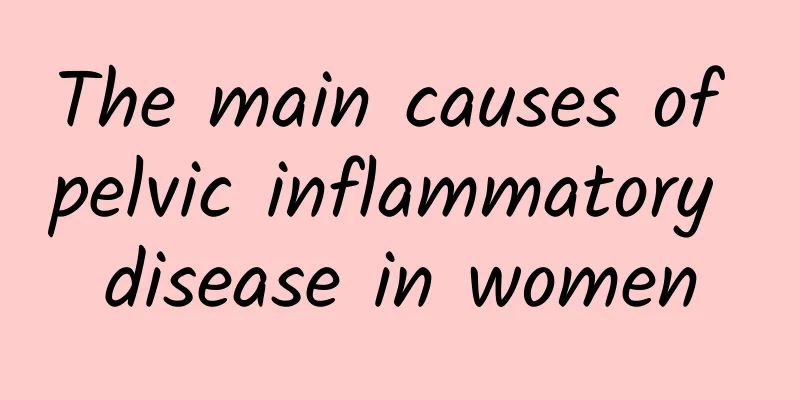5 major behaviors that hurt women's breasts. Many people like to do them. Remember to change them after reading this.

|
Xiaomei is a typical urban white-collar worker, busy in the workplace every day, and has to work overtime at night. She has a habit of wearing tights and high heels, feeling that this is both fashionable and can show her figure. However, she did not realize that this way of dressing is putting a lot of pressure on her breasts. Tight clothes restrict the blood circulation of the breasts, and high heels change the center of gravity of the body, making the chest muscles tense for a long time. Over time, Xiaomei's breasts began to feel some discomfort. Ladies, have you ever thought that those inadvertent little habits may be quietly hurting your "baby" - breasts? Today, I want to reveal to you the "breast killers" hidden in our daily lives; let us take a look at which behaviors are quietly hurting our "good sisters". Next, let's take a look at the five major "breast-hurting" behaviors: Wearing inappropriate underwear: In pursuit of beauty, many women often choose underwear that is too tight or inappropriate in style. Such underwear not only fails to provide adequate support, but also compresses the breasts and affects blood circulation. Wearing a bra that is too tight for a long time: Some women choose a bra that is too tight in order to shape their breasts. Wearing a tight bra for a long time will cause pressure on the breasts and affect normal blood circulation and metabolism. Bad sleeping posture: Sleeping on your stomach or putting your arms under your body when sleeping on your side will put pressure on your breasts and affect blood circulation in your breasts. Lack of exercise: Modern women often ignore the importance of exercise due to their busy work. Lack of exercise can cause the muscles around the breasts to relax and the breasts to not be adequately supported. Irregular lifestyle: Bad habits such as staying up late and irregular diet will affect endocrine system and thus affect breast health. Dear ladies, after reading this, have you begun to reflect on some of your own habits? Don’t worry, from now on, let’s correct these bad behaviors together and protect our “baby”. Doctor's advice: Do these to easily protect breast health! Protecting breast health is a comprehensive process that involves multiple considerations. Here are some key points to help you better protect your breast health: Healthy eating Maintaining a balanced diet rich in vegetables, fruits, whole grains and fish, which are rich in vitamins, minerals and dietary fiber, can help reduce the risk of breast cancer. Regular exercise Regular aerobic exercise, such as jogging, cycling, swimming, etc., can enhance cardiopulmonary function, regulate psychological and mental state, and is beneficial to breast health. Avoid bad habits Avoid smoking and drinking, as these bad habits can increase your risk of breast cancer. Weight control Maintain a healthy weight and avoid obesity, which is a risk factor for breast cancer. Regular breast self-examination Perform breast self-examination every month to detect abnormal breast changes early and seek medical attention in time. Choosing the right underwear Choosing the right bra can reduce pressure and discomfort on the breasts, while also helping to maintain the shape and elasticity of the breasts. Regular breast cancer screening Regular breast cancer screening, such as mammography (breast X-ray), as recommended by your doctor can help detect breast cancer at an early stage. Avoid hormone medications Try to avoid hormonal medications, especially long-term hormonal contraceptives, because they may increase the risk of breast cancer. Keep a positive attitude Learning to control your emotions, maintain a happy mood and a stable mental state is very beneficial to your overall health. By following the above advice, combined with regular medical checkups and professional medical advice, you can effectively protect your breast health. Xiaomei heard a rumor that the larger the breasts, the more likely you are to get breast cancer? The relationship between breast size and breast cancer risk has always been the focus of scientific research. Some studies suggest that women with larger breasts may have a higher risk of breast cancer. For example, one study found that women with large breasts have about 80% higher risk of developing breast cancer than women with smaller breasts. The reason for this result may be that the larger the breast, the more breast cells there are, and the more cells there are, the greater the risk of potential cell mutation or malignant development. However, it is important to note that these findings do not mean that women with small breasts can ignore breast cancer screening. In fact, all women should strengthen their breast cancer screening, because the occurrence of breast cancer is not only related to breast size, but also affected by many factors such as genetics and lifestyle. In general, breast size may be associated with breast cancer risk, but it is not the only risk factor. Regular breast cancer screening, such as breast self-examination, clinical examination by a professional doctor, and necessary imaging examinations, is still crucial for the prevention and early detection of breast cancer. If you have any concerns about your breast health, it is recommended that you consult a doctor. Maintain good habits to keep our breasts healthy, beautiful, and rejuvenated! Remember, caring for yourself starts with caring for your breasts! |
Recommend
How to buy abortion pills online
You cannot buy abortion pills online. Abortion pi...
What will happen if you don't treat cervical erosion? Be careful of the four major hazards of not treating cervical erosion in time
In daily life, many women do not know much about ...
How long does it take for abdominal pain to occur during an ectopic pregnancy? What are the clinical manifestations of an ectopic pregnancy?
After suffering from ectopic pregnancy, some pati...
How do unmarried women treat severe cervical erosion?
How do unmarried women treat severe cervical eros...
How to check for bacterial vaginosis
Many women usually ignore the health of their pri...
Purple anti-obesity craze! Have a glass of purple Korean vitality drink
Recently, there has been a purple whirlwind in ag...
There are four main causes of cervicitis:
Cervicitis is a gynecological disease that troubl...
What are the transmission routes of pelvic peritonitis?
Pelvic peritonitis is a common gynecological dise...
What to eat after ovarian cyst surgery
Ovarian cysts can be treated with surgery, such a...
The root cause of recurring vulvar itching
Regarding the causes of recurrent vulvar itching,...
How long does it take for the embryo to stop developing? What should you pay attention to when the embryo stops developing?
If a pregnant woman has had multiple miscarriages...
What are the symptoms of pelvic inflammatory disease and how to prevent and treat it
Symptoms of pelvic inflammation generally include...
In summer, we should do a good job in preventing pelvic inflammatory disease
Hot and humid weather is a period when bacteria m...
Gynecologist explains the causes of hyperprolactinemia
High prolactin is a common problem for female fri...
EU juice has no added sugar! Dong's: Choose low-sugar juice carefully
The European Union will stipulate that food manuf...









